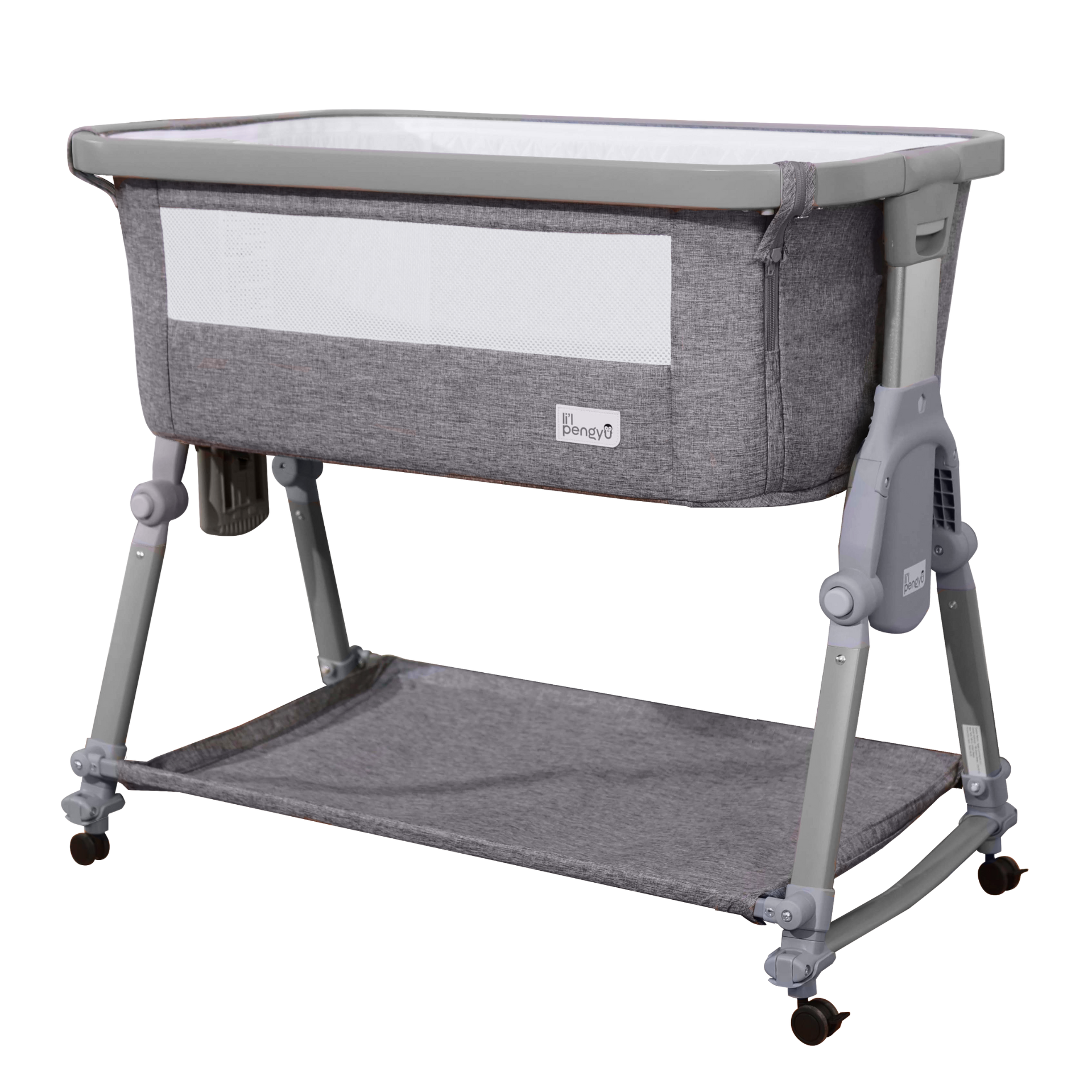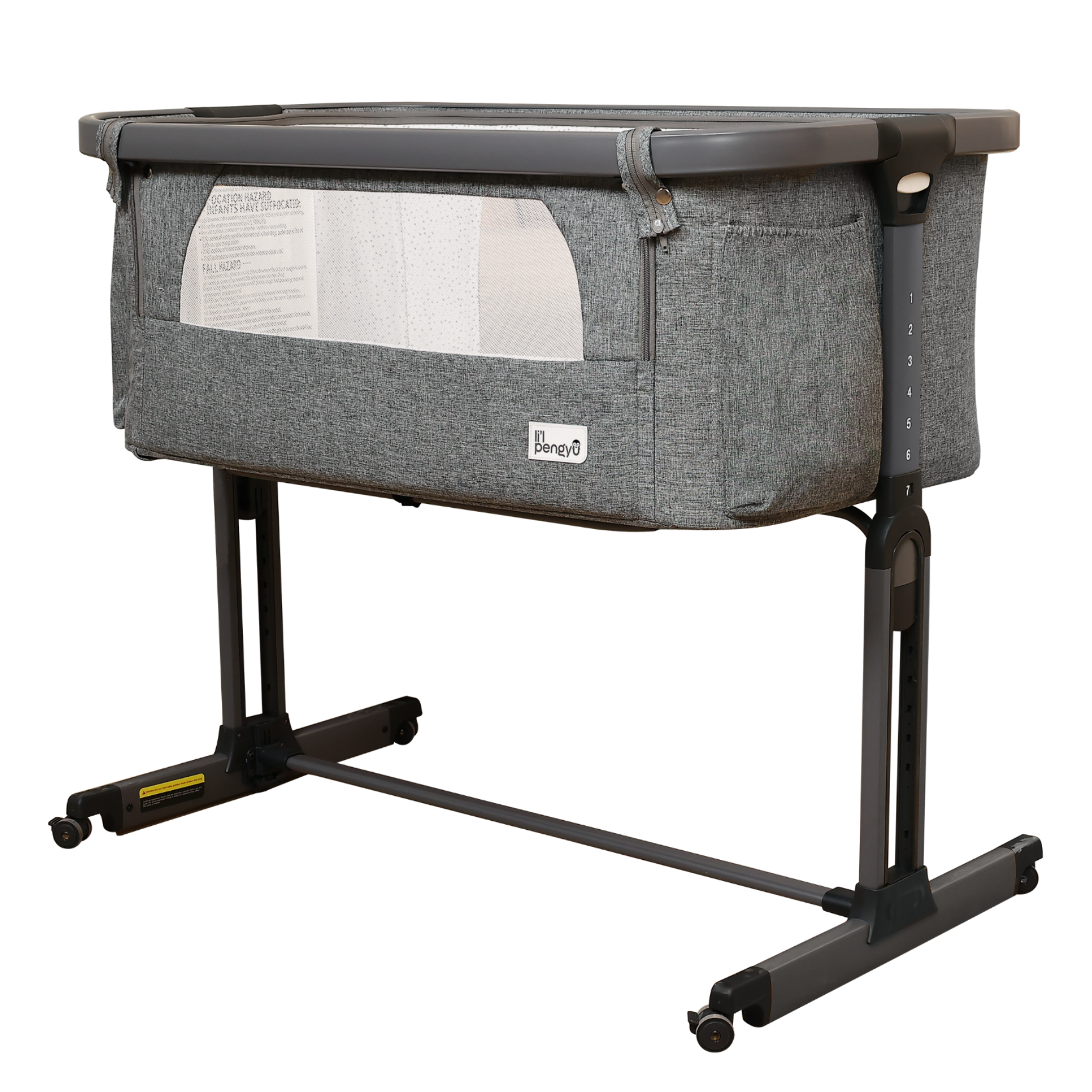The answer is that it depends, as there are a variety of things that can determine when parents should make the transition

As a new parent, you want to spend as much time with your baby as possible. Whether they’re crawling, eating, or doing nothing more than just sitting there looking adorable, you probably have trouble taking your eyes off your bundle of joy.
There will come a time, however, when you will need to consider moving your baby into their own room. When should that be? We offer some guidance that can help you make this big decision.
American Academy of Pediatrics recommendations
According to the American Academy of Pediatrics (AAP), babies should share a room with their parents until at least six months, and ideally, until they are a year old. The organization doesn’t, however, recommend that they sleep in the same bed as their parents, as that carries risks that don’t create safe sleep for newborns.
A 2017 study found that it may actually make more sense for babies to sleep in their own rooms closer to four months, however. Researchers in the study discovered that when babies slept separately from their parents at four months, they got an average of 46 more minutes of sleep per night. At nine months, they slept for 40 more minutes.
How do you know when they’re ready?
To figure out if your baby is ready to sleep in their own baby room, the first thing you’ll want to do is talk to your pediatrician. As long as your baby is healthy and growing well, those midnight feedings may not be necessary anymore, in which case, they may not need to only be an arm’s length away. Plus, your doctor should take into consideration your lack of sleep and other circumstances.
Says Ashanti Woods, MD, a pediatrician at Mercy Medical Center in Baltimore: “Every baby is different, and sometimes pediatricians recommend taking into account what’s best for everybody in the family.”
How long are they sleeping?
Another thing to consider is the length of time your baby stays asleep during the night. If they’re getting up every few hours, staying in your room may be the best choice. If they can sleep through to the morning, that could be a clear sign they’re ready to go to their own room.
Where’s the baby nursery?
Logistics may also play a role in your decision-making. For example, if the baby’s room will be on the other side of your home or perhaps on a different floor, it may not make sense to move them for a while. Think about how long it would take you to get to the room if you needed to get there quickly.
Why you don’t want to move your baby too early
While you may be eager to get your bedroom back to its pre-baby condition, there are many benefits to having your baby in the same room:
Peace of mind
How often do you check on your baby just to “make sure everything’s okay?” It’s something pretty much all new parents do, and it’s a lot easier when your baby is just a few feet away from you as opposed to in another room.
Fast response
Even if they no longer require food at night, there are many things that can wake and upset a baby. When they are right there, you’ll be able to soothe them and give them whatever they need.
Better bonding
Perhaps the best reason to keep your baby in your room is for the emotional connection it helps build. This enables you to have more bonding time and just really get to know one another.
“The parent-child relationship is greatly enhanced by allowing the child to sleep in your room as long as possible,” says S. Daniel Ganjian, a pediatrician at Providence Saint John’s Health Center in Santa Monica, California.
Transition tips
When the time comes to move your baby into their own room, there are things you can do to make things easier for everyone.
Make the new room familiar
The first step is to get your baby familiar with their new room. You can do this by just hanging out in there to play or eat. It’s also a good idea for your baby to take a least one daytime nap in this room.
Use the same bassinet
Whatever your baby is sleeping in – whether it’s a bassinet or something else – be sure to move that into their new room. Immediately putting them in a crib or something unfamiliar could make them feel uncomfortable.
Stick to the routine
Your regular bedtime routine should vary as little as possible. Whatever you do in terms of feeding, playing, singing, etc., now you will do it in the baby room. This will help your little one get better acclimated.
Give it some time
Transitioning your baby into their own room will probably be a little rocky at first for everybody, which is why it’s important to give it time. And don’t be afraid to pivot; if you find that it’s not working, there is no reason why things can’t go back to how they were.
If you’re looking for the right bassinet that will make transitioning simple, we have it. Our bassinets can be assembled fast, have detachable side panels that make the perfect side sleepers, and can easily be moved from room to room.






